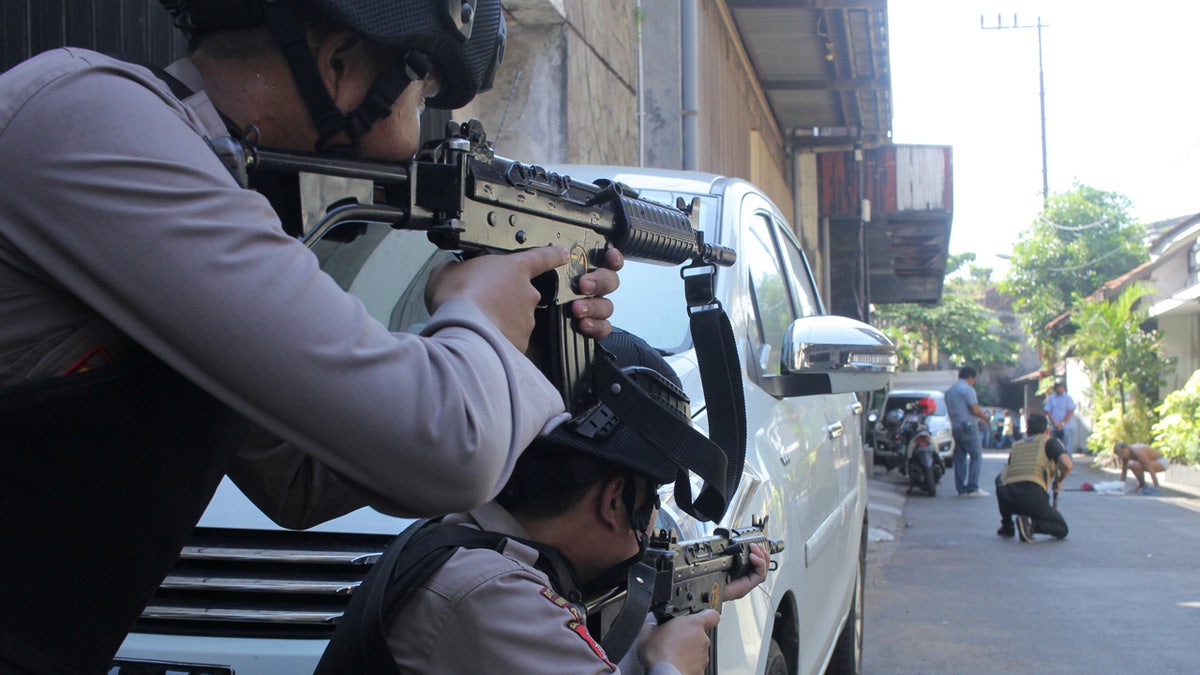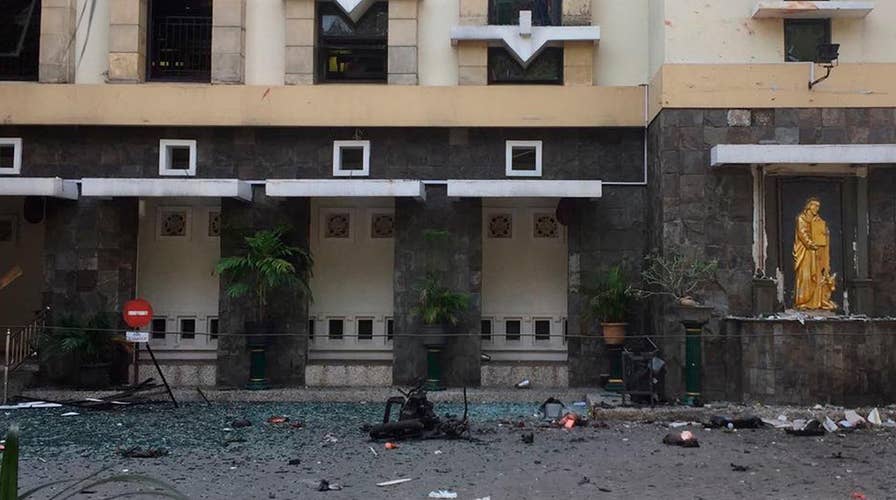Authorities in Indonesia on Monday said that a family—including children— carried out a suicide attack on a police headquarters in the country's second-largest city, a day after members of another family launched coordinated suicide bombings on three city churches that killed at least eight people.
A girl about eight years old was with two of the attackers on a motorcycle and survived being thrown by the blast at Surabaya's police headquarters, Tito Karnavian, the national police chief, said.
The attack killed four perpetrators. Six civilians and four officers were wounded. The attacks have been aimed at the country’s Christian minority. The attack on the police station occurred just hours after police said the other family carried out the church bombings, which included girls aged nine and 12. In one of the attack, the children wore bombs around their waists, he said.
The attacks have raised concerns that previously beaten down militant networks in the world's most populous Muslim-majority nation have been reinvigorated by the return of some of the estimated 1,100 Indonesians who went to fight with the Islamic State group in Syria.
Experts have warned for several years that when those fighter return, they could pose a significant threat.
ISIS claimed responsibility for the church bombings in a statement carried by its Aamaq news agency. Karnavian, however, said earlier police comments that the family had spent time in Syria were incorrect.
He said the church bombers and the police headquarters attackers were friends, as were another family whose homemade bombs exploded in their apartment Sunday night.

Police aim their weapons at a man who was being searched by other police officers following an explosion at nearby police headquarters in Surabaya. (Reuters)
The use of children in the attacks has been particularly horrifying to people. Indonesia's president Joko "Jokowi" Widodo condemned them as "barbaric" and vowed that authorities would root out and "destroy" Islamic militant networks.
Security camera footage of the attack on Surabaya's police headquarters showed at least one explosion after the four attackers rode two motorcycles up to a security checkpoint. The motorcycles, which moved closely together, pulled up alongside a car and four officers manning opposite sides of the checkpoint.
“The killing of five police officers is seen by these terror cells as an invitation for them to do the same,” Al Chaidar, a terrorism analyst from Malikussaleh University, told The Wall Street Journal.
Two men, apparently civilians, were walking into the area just meters from the motorcycles at the moment of the explosion, which a split second later was followed by a second possible blast.
Indonesia's deadliest terrorist attack occurred in 2002, when bombs exploded on the tourist island of Bali, killing 202 people in one night, mostly foreigners. Jemaah Islamiyah, the Al-Qaeda affiliated network responsible for the Bali attacks, was obliterated by a sustained crackdown on militants by Indonesia's counterterrorism police with U.S. and Australian support.
Karnavian has said the father of the family that carried out the church bombings was head of the Surabaya cell of Jemaah Anshorut Daulah, an Indonesian militant network affiliated with IS that has been implicated in attacks in Indonesia in the past year. All six members of the family were killed.
The ISIS statement claiming the attacks didn't mention anything about families or children taking part and said there were only three attackers. The group also claimed responsibility for a hostage-taking ordeal last week by imprisoned Islamic militants at a detention center near Jakarta in which six officers were killed.
Separately on Sunday, three members of another family were killed when homemade bombs exploded at an apartment in Sidoarjo, a town bordering Surabaya, police said.
The church attacks occurred within minutes of each other, according to Surabaya police spokesman Frans Barung Mangera.
Karnavian said the father drove a bomb-laden car into the city's Pentecostal church. The mother, with her two daughters, attacked the Christian Church of Diponegoro, he said. Based on their remains, Karnavian said the mother and daughters were all wearing explosives around their waists.
The sons aged 16 and 18 rode a motorcycle onto the grounds of the Santa Maria Church and detonated their explosives there.
The Associated Press contibuted to this report

